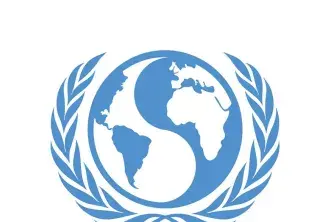KAICIID and ISESCO Convene Governmental Policy Makers on Interreligious Education: “Pioneering Policy and Practice: Technology and the Future of Interreligious and Intercultural Education”
Rabat, Morocco- From 20-21 April 2015, policy makers from countries such as Kenya, Korea, Lebanon, Morocco, Norway, Pakistan, and Senegal will meet to discuss the future of interreligious and intercultural education (IIE) at the conference: “Pioneering Policy and Practice: Technology and the Future of Interreligious and Intercultural Education.” This event is organized by the King Abdullah Bin Abdulaziz International Centre for Interreligious and Intercultural Dialogue (KAICIID) and the Islamic Educational, Scientific and Cultural Organization (ISESCO), which have worked together under a Memorandum of Understanding since November 2013.
During the two day conference, participants will take part in a cross-regional exchange about diverse tools and models for excellence in education that includes building the skills for intercultural dialogue. Hillary Wiesner, KAICIID Director of Programmes explained: “This conference offers new options to policymakers grappling with new challenges, including the first university-accredited online course in interreligious dialogue. More than ever before, success depends on building understanding, respect and teamwork among diverse people. Intercultural dialogue is a lifelong learning skill that each of us must acquire.”
Learning about other religions and cultures takes place in many forms across the globe, in confessional and non-confessional contexts, in classrooms teaching history or citizenship, in families and in places of worship. The Rabat conference asks educators and policy makers how they access research, develop curricula and exchange programmes, and apply international standards and practices. It highlights successful interreligious and intercultural learning methods developed in ISESCO member states. It examines the convergences with the United Nations’ Global Citizenship Education framework promoting shared values and human rights.
The UN framework of Global Citizenship Education is defined by UNESCO as a sense of solidarity between citizens across the world. This framework upholds inclusive citizenship education as a way to enable greater social cohesion between communities. Inclusive citizenship is described by UNESCO as a perspective; “Inclusive education should be viewed in terms of including traditionally excluded or marginalized groups or making the invisible visible…These invisible groups are excluded from governmental policy and access to education.”
KAICIID will present an online toolkit that KAICIID is developing for curriculum design, self-assessment and measuring student achievement. The core section of the toolkit helps users identify priorities for both pedagogy and teacher professional development, as well as effective resource allocation for IIE. This unique toolkit allows users to apply their specific context and needs. This platform, helps researchers and policy makers to share professional insights with peers and they expand the knowledge available for colleagues internationally.
In each region, educators are working to reinforce the values that support coexistence. Respect for cultural and religious diversity requires both well-adapted learning materials and methods of dialogue and encounter - new approaches for lifelong learning.Experts will present the latest developments in technology that will guide the future of IIE, such as open source platforms for education, including Massive Open Online Courses (MOOC), which will make IIE available to an unprecedented number of students anywhere in the world.
KAICIID’s Interreligious and Intercultural Education Programme works to ensure that people of different religious and cultural groups learn about each other in a respectful and inclusive way through education and the media, two of the most powerful instruments for mutual understanding. Education has a powerful influence on our understanding of other cultures and religions. KAICIID helps countries review curricula and to revise policies to improve the accuracy of the depiction of people of faith and members of different cultures.
ISESCO focuses its efforts in education under the three-year Action Plan for 2013-2015 on two sector-specific priorities: developing Member States’ education systems and strengthening the role of education in addressing sustainable development issues. These goals underline the need to achieve two main priorities, namely: providing correct information about Islam and Muslims while achieving sustainable development for ISESCO Member States, and enabling member states to assume their central role in achieving sustainable and comprehensive development for society in terms of education and the requirements for developing their education systems.
About UNESCO's Global Citizenship Education
Global citizenship education (GCED) is one of the strategic areas of work for UNESCO’s Education Programme (2014-2017) and one of the three priorities of the UN Secretary-General’s Global Education First Initiative (GEFI) launched in September 2012.
Global Citizenship Education equips learners of all ages with those values, knowledge and skills that are based on and instil respect for human rights, social justice, diversity, gender equality and environmental sustainability and that empower learners to be responsible global citizens. GCED gives learners the competencies and opportunity to realise their rights and obligations to promote a better world and future for all.
© Dr. Jinmi Adisa, Director of the African Citizens Directorate (CIDO) at the African Union, and KAICIID SG Faisal Bin…

![[file:field-file-image-alt-text]](/sites/default/files/styles/features_940_630/public/isesco.jpg_1.jpg.webp?itok=jwfLZqf9)


![[file:field-file-image-alt-text]](/sites/default/files/styles/cards_360_270_scale_crop/public/img_508_web.jpg.webp?itok=h0mHOb9Y)